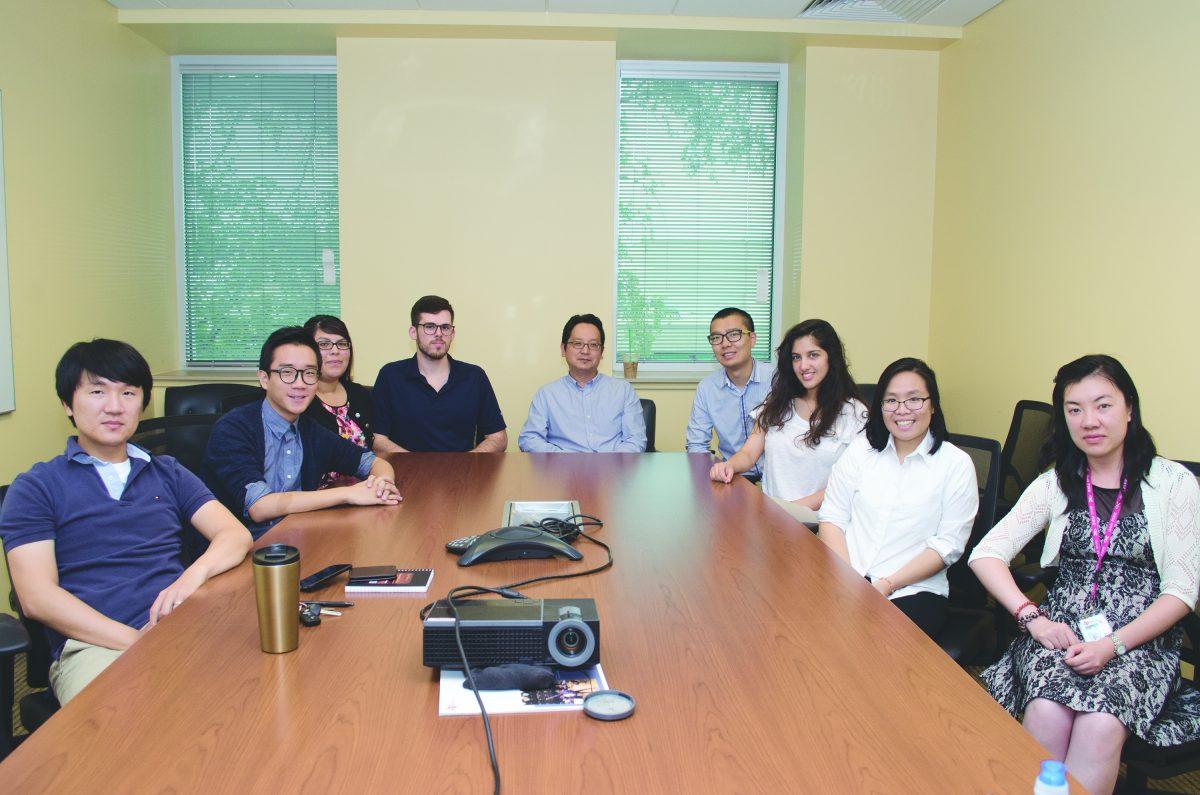Cancer research at UTD has reached a new milestone thanks to a recent grant from the Cancer Prevention Research Institute of Texas.
Jiyong Lee, an assistant professor of chemistry at UTD, was awarded $194,000 in May to conduct cancer stem cell research that focuses on the prevention and treatment of breast cancer.
“The research has never been done before and we are trying to do something new,” Lee said. “If it works, the impact will be huge.”
The main objective is to identify the proteins whose presence may cause breast cancer patients to relapse after otherwise successful treatments.
Research officially began in June and will continue for two years.
According to Lee, there is a population of cancerous sub-cells called stem cells which often linger despite chemotherapy and other treatments. These cells, while infinitesimal, usually remain because they are chemo-resistant.
“Conventional chemotherapy targets the mass of the tumor itself, but it never really kills these stem cells,” Maria Castaneda, a doctoral student and researcher working under Lee, said.
If scientists can identify the proteins that remain in cancer stem cells, then they are closer to targeting those specific cells instead of attacking the entirety of the tumor.
By obtaining both a better understanding of cancer stem cell receptors and identifying their respective drug interactions, the project could potentially help maximize cancer treatment options in the future.
“It’s possible that the identity of the receptor is already discovered, but its connection to cancer just wasn’t clear,” Lee said. “I hope that we’re going to be able to identify many various receptors on cancer stem cells, and each of them will give us new opportunities to develop new cancer drugs.”
Despite the grant, Lee acknowledged that there will be difficulties to his research given its expansive nature.
“I don’t think we’ll be able to solve everything by ourselves,” he said. “But we are going to share this information with all of the other cancer researchers in Texas.”
Even though Lee does not know anyone personally who is suffering from cancer, he knew early on that he wanted to help people with incurable illnesses.
He came to the university unsure of what he wanted to pursue. He was somewhat interested in chemistry, though it wasn’t until he saw a TV special on genetic diseases that he became inspired to pursue scientific research.
“The father of the family they showed was showing symptoms of a disease, but there was no cure at all,” Lee said. “It was Sunday. I was just relaxing.
But that show changed my life, really. I just felt that I must do something about it.”
Today Lee is working on several cancer-related research projects, though he says it has been difficult to secure funding on an individual basis.
“We do our best to get external funding, but then that’s not always enough,” he said. “Not just me, but all the people at UT Dallas have really good research ideas to try.”
Aside from supporting professors directly, donations would especially benefit students, through increased scholarships and research assistantship stipends.
“We have a lot of wonderful undergraduate students and really smart graduate students, and I just want them to have more chances to be involved,” Lee said.
Despite these setbacks, Lee said his lab has made diligent progess with the money from the grant.
“Whatever discovery we make could help people lead their happy lives,” he said.











